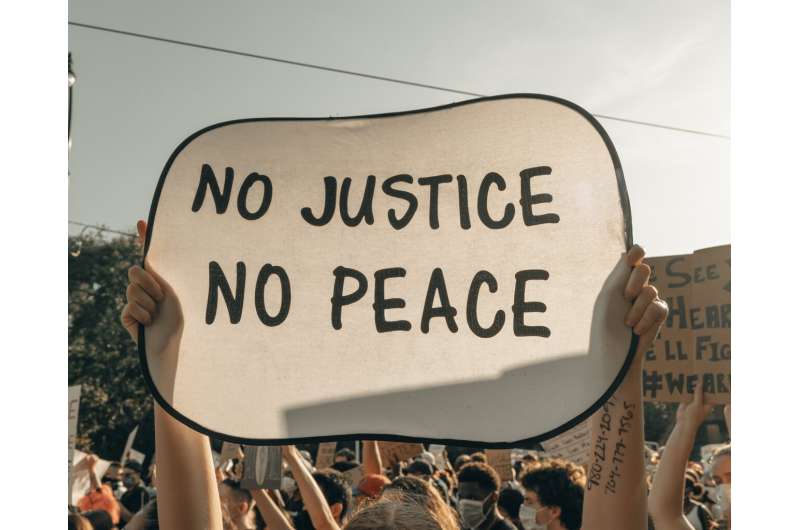Study: In Tempe, AZ, COVID-19 pandemic had stronger impact on policing and crime than George Floyd's death

A new study examined the impact of COVID-19 and George Floyd's death on police work in the Tempe, Arizona, police department. The study examined weekly trends in crime and officer activities, as well as footage from body-worn cameras. The impact of the pandemic and Floyd's death was mixed and varied by type of crime, with the pandemic having a larger impact than Floyd's death, the study concluded.
The study, by researchers at Arizona State University (ASU), appears in Justice Quarterly, a publication of the Academy of Criminal Justice Sciences.
"The killing of George Floyd and of other Black Americans by the police spurred unprecedented scrutiny of the police, protests, and calls for defunding," says Michael D. White, professor of criminology and criminal justice at ASU and lead author of the study. "These occurred against the backdrop of the pandemic, which police responded to in myriad ways, and both the killings and the pandemic coincided with a large increase in violent crime."
The study used interrupted time series analyses to investigate weekly trends from 2017 to 2021 in several areas of policing in Tempe, including calls for service, reported crime, officer proactivity (deterring criminal activity by showing police presence), traffic accidents, arrests, and use of force. The study also examined randomly selected footage from body-worn cameras from approximately 475 incidents. Data were compared from three time periods: before the pandemic, during the pandemic, and during the week following Floyd's death. The researchers treated the global pandemic and George Floyd's death as events with discrete and different start dates.
Among the study's findings:
- The impact of the pandemic and Floyd's death on crime was mixed: All reported crime dropped immediately and significantly after the onset of COVID-19, with the decline lasting five months, well after Floyd's death. Crimes against property and society and burglaries declined, purportedly as a result of the pandemic and stay-at-home orders, but those effects lasted less than a month, ending weeks before Floyd's death. Crimes against people, assaults, robbery, and domestic violence were not affected by the pandemic.
- The impact of the pandemic on other measures of police activity was consistent: The pandemic altered every aspect of police activity. Citizen-initiated calls for service declined 22% and officer-initiated calls fell 11%. Arrests dropped 46% and traffic accidents fell 56%.
- The impact of Floyd's death was different: Following Floyd's death, citizen calls for service and traffic accidents declined. Officer proactivity also declined precipitously (by 43%). Use of force spiked in the weeks following the start of the pandemic and continued to rise in the fall of 2020, suggesting a possible interactive effect between the pandemic and Floyd's death.
- Body-worn camera footage highlighted the consistency in how officers handled citizen encounters before and after both events.
Overall, while Floyd's death had an independent impact on some measures of crime and police activity, the study concluded that the pandemic had a larger impact.
"The study's findings highlight the localized effects of these events," conclude White and his coauthors. "This study tells the story of one city, but it has implications for policy beyond Tempe."
Among the study's limitations are that it examined just one police department, so the extent to which its findings are generalizable to other jurisdictions is unknown. Also limiting are the shortcomings of administrative police data used by the study and problems with body-worn cameras (e.g., officers' failure to record encounters, obstructed views).
More information: Michael D. White et al, Investigating the Impacts of a Global Pandemic and George Floyd's Death on Crime and Other Features of Police Work, Justice Quarterly (2022). DOI: 10.1080/07418825.2021.2022740
Journal information: Justice Quarterly
Provided by Crime and Justice Research Alliance





















